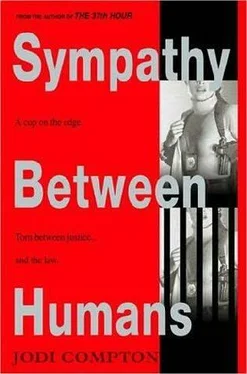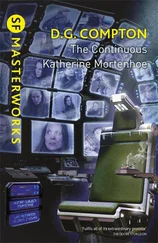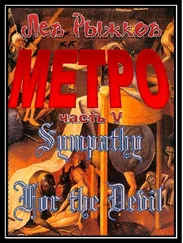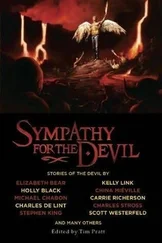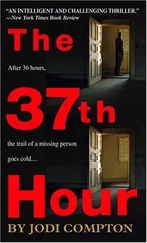It was the morning after Marlinchen and I had our drinks out by the lake, and I was doing something I’d done a number of times since the morning I’d told Kenny Olson I wanted to be a cop: conferring with a prosecutor over the feasibility of criminal charges.
It was, though, on an unofficial basis. Kilander and I were spending the lunch hour in his office, eating takeout I’d brought up: a curried chicken salad over lettuce, dinner rolls, and iced tea. I’d just told him what I knew about the Hennessys: Hugh’s beatings and Aidan’s exile, the inexplicable animosity Hugh felt toward his eldest son.
“It’s an ugly story, no question,” Kilander said. “But the purpose of juvenile and family law isn’t to punish, it’s to intervene. No agency would try to prosecute a parent for past child abuse that didn’t result in permanent injury.”
“I know that,” I said, tearing my previously untouched roll in half and spreading butter on it. More than anything else, I was stalling. What I was about to tell Christian Kilander, I hadn’t even shared with Marlinchen yet. “What I’ve told you is essentially background. That wasn’t the end of the story.”
“Ah,” Kilander said. “Should I cancel my one o’clock deposition?”
He was teasing me; I’d known he’d do that. I’d known he’d play devil’s advocate, too. It didn’t bother me. That was partly what I’d come to him for, his sharp and reductive mind.
“Sarah?” Kilander prompted.
“I think Aidan shot himself with his father’s gun,” I said, setting the roll down uneaten. “I think Hugh covered it up.”
For the first time, Kilander smiled. “You come up with the most amazing theories,” he said. “Do tell how you arrived at this one.”
I told him about Aidan’s missing finger and the explanation Marlinchen had given me for it, the neighbor’s vicious dog that had supposedly bitten the three-year-old boy, causing him to be away from home for what Marlinchen had called “a long time” and to return without a little finger on his left hand.
“Why don’t you believe it?” Kilander asked.
“I’ve seen the area they live in,” I said. “They have neighbors, but not immediate ones. It would have been quite a long trek for a three-year-old to make, to put himself in the path of a neighbor’s dog.”
Kilander said nothing.
“At that same time, Hugh Hennessy owned some antique pistols. He kept them in his study and showed them to reporters; I’ve seen them in magazine photos. But at some point later, Hennessy developed an aversion to guns. He won’t have them in his home.” I banished an unwelcome thought of Cicero. “Meanwhile,” I went on, “Hugh decided to replace the carpet in his study. He had the money to have it done professionally, and he wasn’t a do-it-yourself type. Yet he did the work himself. Badly. You can see it was done by hand. The kids estimate he did this about fourteen years ago, when the twins would have been three to four years old.
“At around this time, in her earliest memories, Marlinchen Hennessy has a rather odd recollection. She says lightning struck the house, and that it upset her mother to the point of crying, and that this gave her a fear of storms for years to come. Storms and loud noises,” I added, stressing the last two words.
“Couldn’t there really have been a lightning strike?” Kilander asked.
“I’ve seen the house from the outside,” I said. “There’s no damage from it anywhere.”
“So it was repaired,” Kilander said.
I shook my head. “That’s what I thought, but Marlinchen Hennessy can’t even point to the spot where the house was hit. How could she have vivid memories of the night it happened, but no memory of seeing the damage, or workmen climbing up to repair it, anything like that?”
Kilander nodded.
“Speaking of home repair,” I went on, “in addition to the carpet Hugh replaced himself, there are bleach spots on the carpet in the upstairs hallway, like someone scrubbed out some stains. They’re consistent with Hugh cleaning up bloodstains himself, to the best of his limited ability.”
Kilander nodded, speculative. “So you think the little boy shot himself with his father’s gun, and the finger wasn’t salvageable.”
“He was just old enough to be curious like that, and disobedient. He’d probably seen guns on TV,” I said.
“And Hugh lied about what happened to cover it up,” Kilander went on.
“It would have been professionally disastrous,” I said. “Imagine what the media would have made of it: ‘Negligent Father Leaves Loaded Gun in Unlocked Desk; Adorable Tot Shoots Self with It.’ Hugh was a bigger name in those days; the press was interested in him. It would have been bad publicity for any writer, but worse for Hugh. He’d written two popular books on family and love and loyalty. Being a family man was his-” How did marketing people put it? “It was his brand.”
Kilander scraped the rest of the chicken salad onto his plate. He was eating more than his share, but I kept quiet. There was something endearing about his unabashed greed.
“So Hugh tried to keep it quiet,” I said. “The twins were just young enough to have their memories reprogrammed like that. If your parents tell you something long enough, you believe it,” I said. “But if you talk to the Hennessy twins, their memories don’t line up. Marlinchen remembers lightning striking the house. Aidan doesn’t. Marlinchen says Aidan was in the hospital a long time. Aidan doesn’t think he was. Something’s screwy there.”
Kilander sipped his coffee, thinking. I got up and walked over to the window, looking out.
“It explains the abuse,” I went on. “Hugh cleaned up the house as best he could, but Aidan was the one thing Hugh couldn’t sweep under the rug. He was always around, with his maimed hand, and it probably just got under Hugh’s skin. I think things might have been okay if his wife hadn’t died, if he didn’t have a bad back and an ulcer… I think he was just under a little too much stress, and Aidan became the scapegoat. Because of Hugh’s guilt.”
“Do you have any physical evidence for this?”
“No,” I said. “Not yet.”
“What about ER records?” Kilander said. “Sounds like the kid got some kind of treatment, if the finger was removed neatly.”
I shook my head. “Medical records from fourteen years ago? I’m sure they’re in a box, in a warehouse, somewhere. But I’d need a subpoena to get at them, and that’s not going to happen with the evidence I have.” I paused. “That’s why I haven’t told either of the twins about this. I don’t want to shake them up, not until I have some proof.”
“When will that be, exactly?” Kilander asked.
Touché.
“Right,” Kilander said. “And here’s the million-dollar question: So what?” He didn’t wait for me to answer. “Even if you found incontrovertible evidence in support of your theory about the gun, it was still an accident. If Hugh lied to his children, that’s not a crime. And that’s just the grounds part of it.”
“What’s the other part?” I asked.
“You said this guy has aphasia, from the stroke?”
I nodded.
“That’s probably the worst possible handicap he could have sustained, from a legal standpoint. If he can’t communicate, he can’t participate fully in his own defense. Even the most hard-core of judges would throw the case out so hard it’d bounce.”
“I wasn’t talking about a prosecution this month, or even this year,” I said. “He’s recovering. He could recover completely.”
“Or he might not,” Kilander said. He put his plate and napkin into the plastic bag the food had come in. It was time for his one o’clock deposition. I put my plate in, too, and tied the top of the bag shut, planning to drop it into a trash can in the outer office.
Читать дальше
